Before Delilah was born, her mom, Mallory, knew something wasn’t quite right about herself, but she could not explain it. There were subtle signs beginning in her teenage years that were mostly ignored or misunderstood. Mallory would get sudden hand cramps while opening jars. Her eyes wouldn’t fully close while she slept, leading to damage and scarring on her eyes. Her facial muscles were weak, making it hard to close her mouth. Mallory would fatigue quickly from short walks. People saw her as lazy, unmotivated or even unusual, given the uninterested appearance caused by her facial weakness. No one thought it could be something deeper.
After being married for some time, Daniel and Mallory were ready to begin family planning shortly after graduating from college. They were excitedly awaiting the birth of their first child. The pregnancy had some subtle abnormalities. Mallory did not feel her baby kicking, and she had a vast amount of amniotic fluid building up, leading to her water breaking prematurely at 33 weeks. Delilah was born three days later and faced a tough start. She had to be resuscitated, wasn’t breathing on her own and a week later was limp in her parents’ arms and considered very “floppy.”
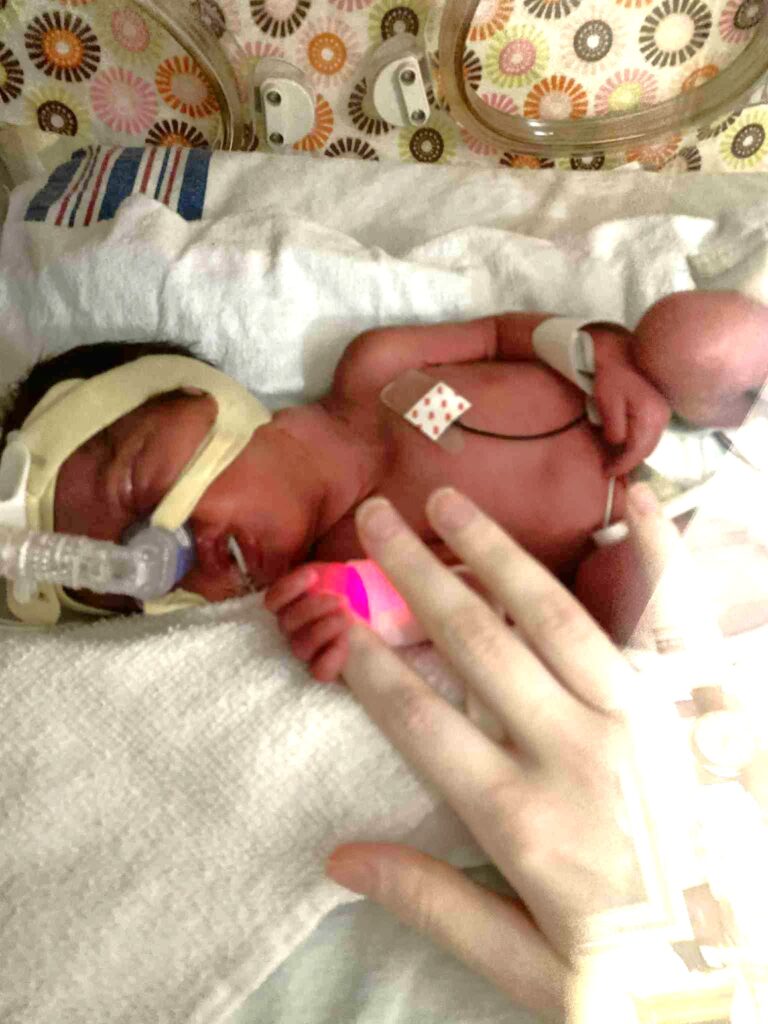
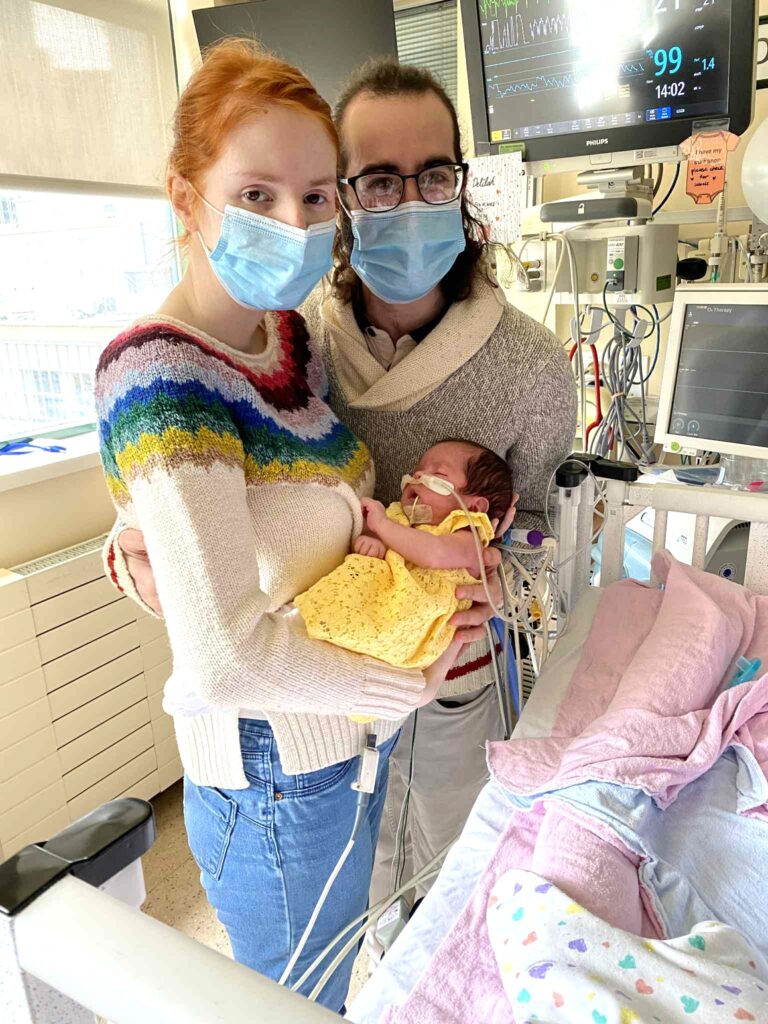
Delilah was transferred to SickKids Hospital for extra support as she couldn’t swallow, had no gag reflex, needed feeding tubes and air support. A neurologist at SickKids took one look at Mallory, noting her unique facial structures, and was confident that Delilah’s symptoms were due to a form of Muscular Dystrophy called “Myotonic Dystrophy Type 1” (“DM,” from the Latin term “dystrophia myotonica”). On March 21, 2022, Delilah was officially diagnosed with Congenital Myotonic Dystrophy Type 1. DM is a progressive, inherited neuromuscular disorder. “Myotonic” means difficulty releasing muscles once they contract. “Dystrophy” refers to the gradual weakening of all muscles over time.
Despite her parents’ optimism about her growth and progress, they were told she would either need a trach and a feeding tube indefinitely, or they could choose to let her pass in palliative care. They were given two weeks to decide. This was a terrifying and heartbreaking time for Mallory and Daniel, given the uncertainty their family was now facing. Miraculously, Delilah began coughing, swallowing and developed a gag reflex. Once the two-week period concluded, instead of meeting the doctors regarding a decision, Delilah graduated from the neonatal intensive care unit (NICU).
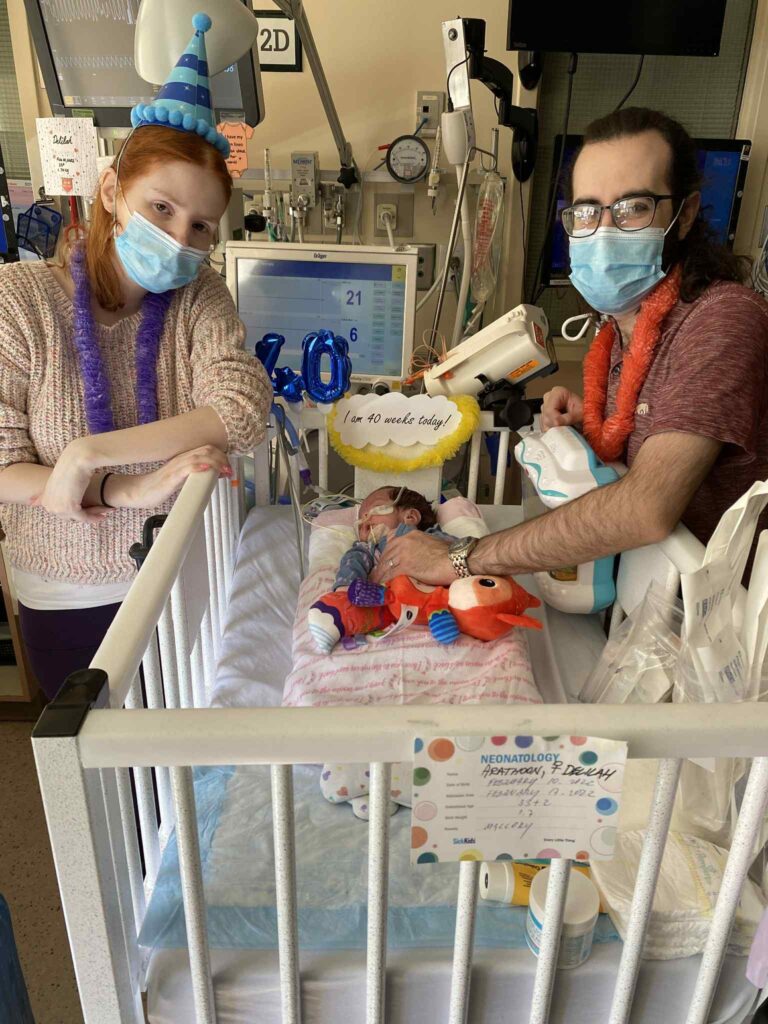
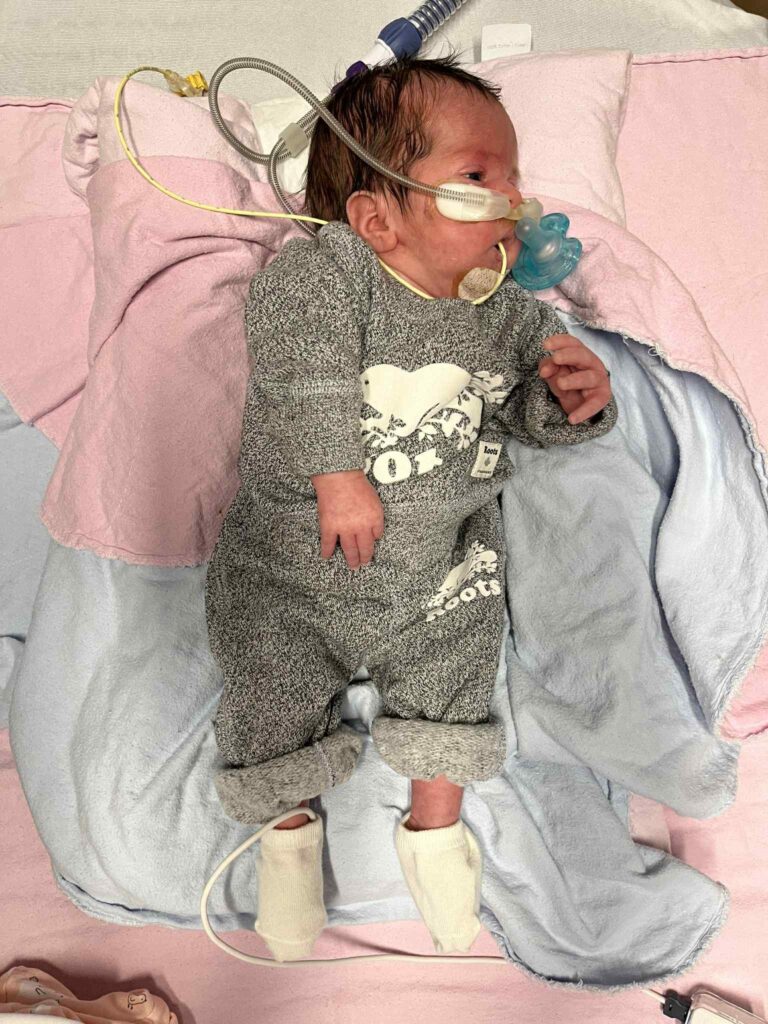
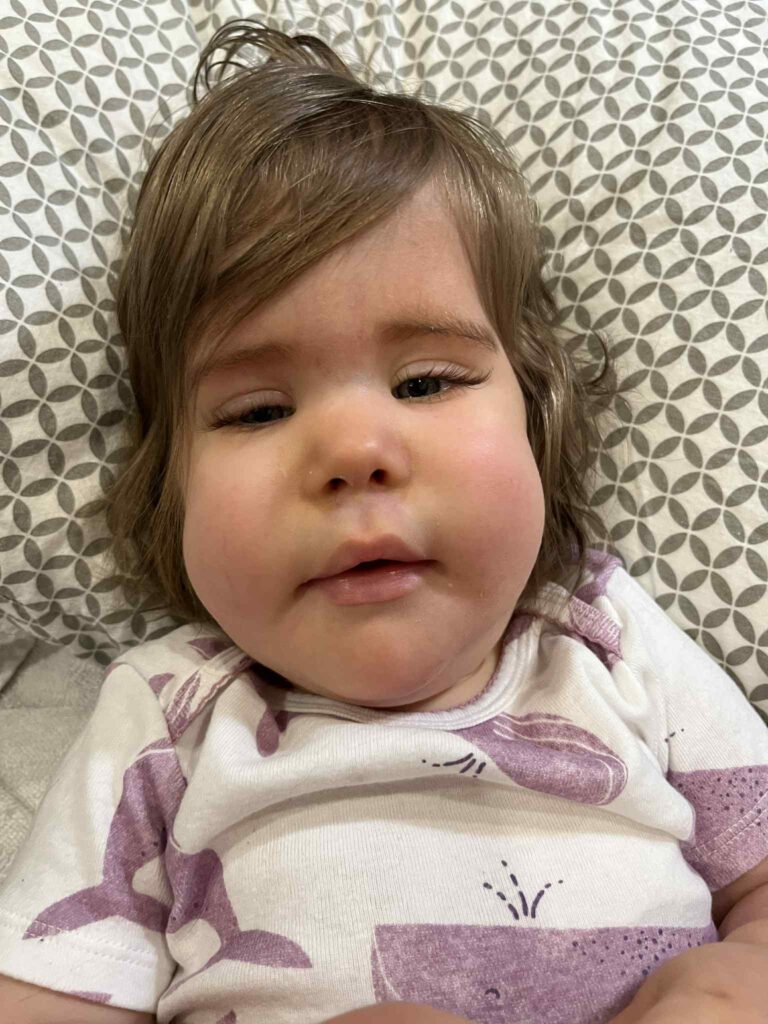
After Delilah was formally diagnosed, Mallory received her own genetic test back, and it revealed that she indeed had DM. The diagnosis changed everything. Suddenly, all of Mallory’s struggles as a teen made sense. The exhaustion, brain fog, muscle weakness and sadness of being misunderstood. The diagnosis brought grief and validation. Mallory wasn’t lazy or weak. She had a progressive neuromuscular condition. It was real, and her daughter’s life depended on knowing that.
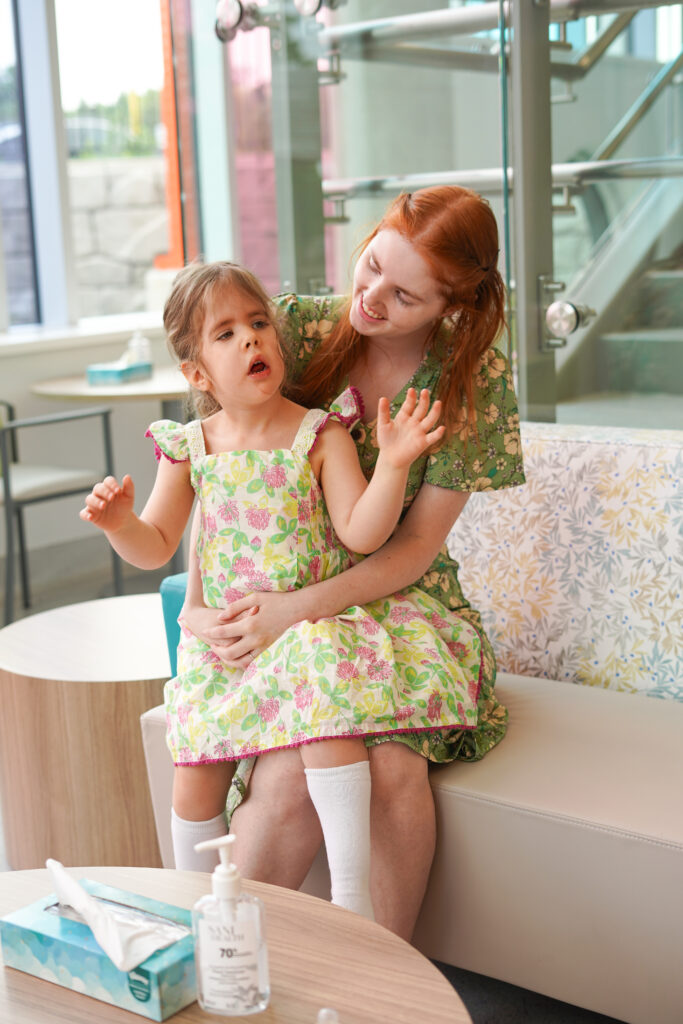
DM is characterized by repeat extensions in specific genes – cytosine, thymine and guanine, a trinucleotide repeat expansion, with CTG repeats in DM Type 1 and CCTG in DM Type 2. The length of the repeats correlates with the severity of the disorder. A normal number of repeats is up to 35. Mallory’s father was tested and diagnosed with the mildest form of DM with a repeat count of about 50. Mallory’s repeat count was between 300-600. Delilah’s repeat count is a staggering 1300 repeats. Each of them represents the three severities of Myotonic Dystrophy: Mild, Classic and Congenital. If the DM gene is passed on to a child, it will often present more severely than in the parent who had it. This diagnosis story is very familiar to other families living with Myotonic Dystrophy, and it emphasizes the importance of being aware and recognizing milder symptoms.
Early diagnosis brought vital early intervention in the form of networking, information, research, support and therapies. Delilah was referred to Grandview Kids and connected to a team of specialists who rallied around her: physiotherapy (PT), occupational therapy (OT), speech-language pathology (SLP), social work and more. From learning how to hold her head up to crawling and walking with a walker, Delilah’s every milestone was met with cheers from “Team Delilah.” Speech therapy introduced her to an augmentative and alternative communication (AAC) device so she could express her needs, as she is non-verbal. OT helps with fine motor skills and feeding. PT supports her balance, strength and walking goals. At Grandview Kids, she is more than just a textbook diagnosis.
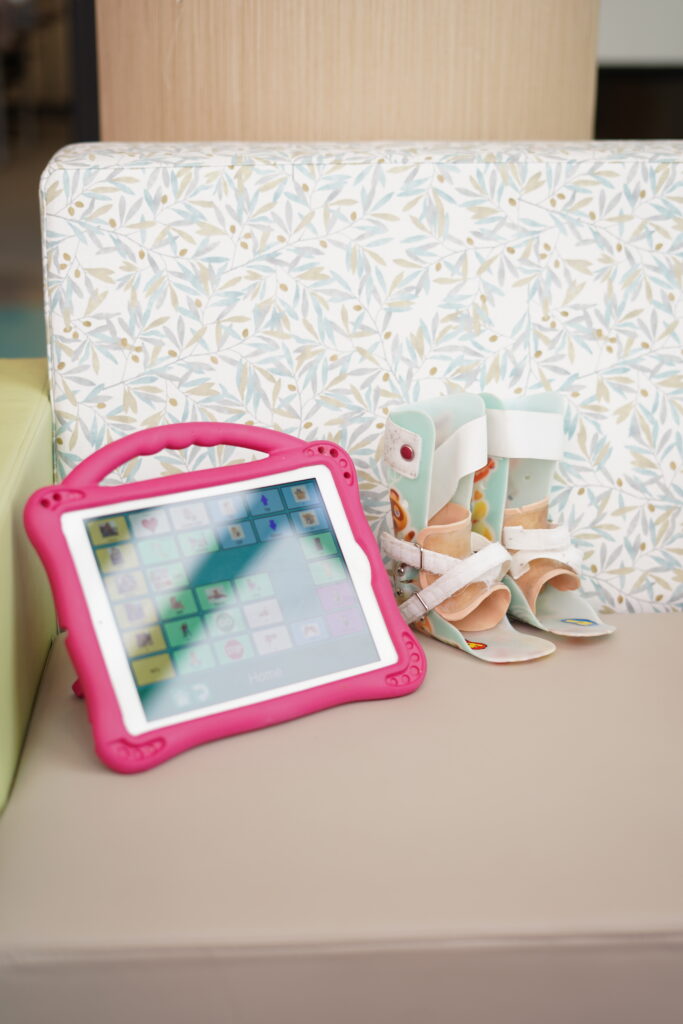
“Delilah lights up when she sees her therapists,” Mallory says. “They don’t need to read notes; they know her. They care about her. They care about us,” recounting how the therapists even ask Daniel and Mallory about their personal well-being.
Delilah’s goals are to walk and talk. She shows it through her everyday determination. She’s pulling herself up into a standing position against walls, taking side steps and has even taken an independent step towards her parents. Shortly after Delilah’s birth, Daniel wrote to his workplace to explain his daughter’s condition. To their surprise, the company’s owner responded, explaining how intimately aware he was of DM and its impact, as his own daughter and late wife had congenital and classic DM. His daughter is now 40, doing well, working and living as independently as she can. This has been a large contributing factor to the family’s optimism and inspiration for Delilah’s future.
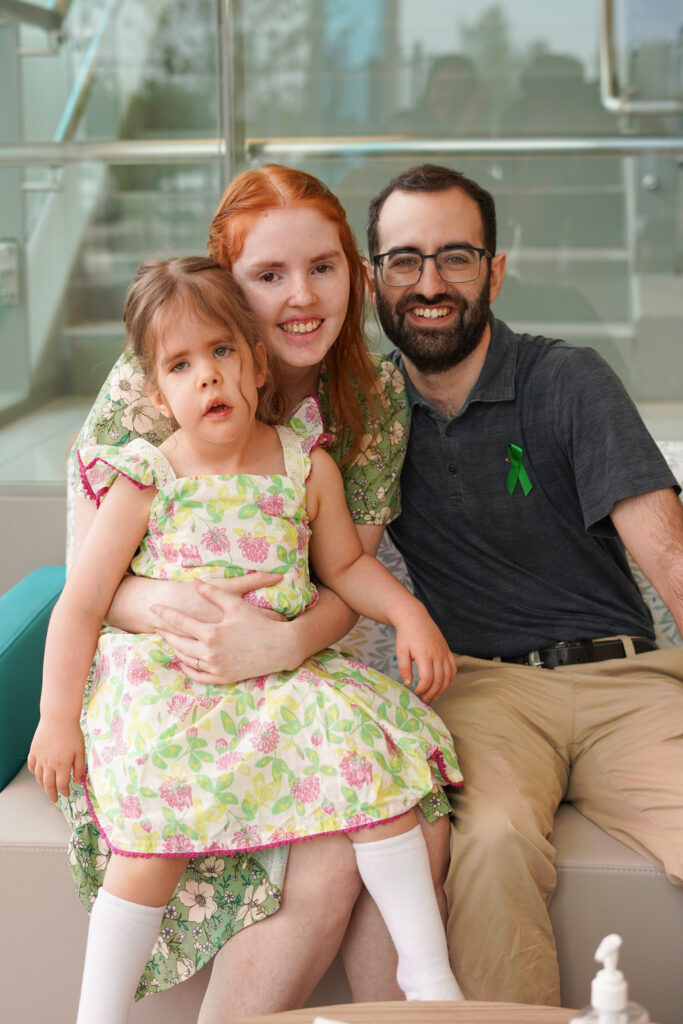
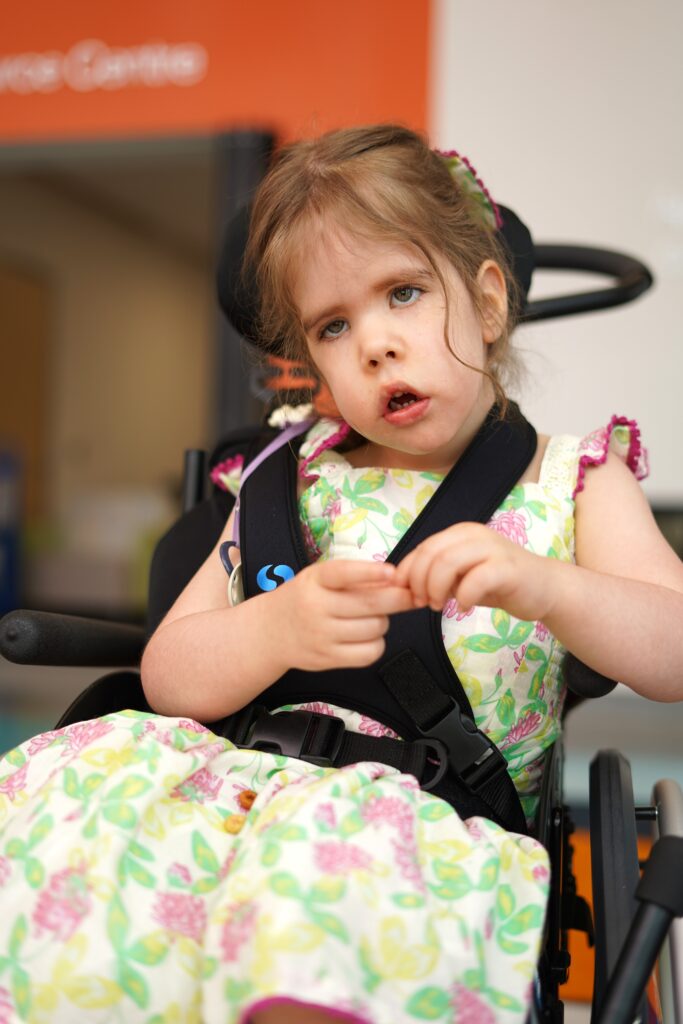
It may not be tomorrow, but hope is growing for Daniel, Mallory and Delilah. Every day is a challenge. There are appointments with neurologists, cardiologists, ophthalmologists and respirologists. There are grant forms, funding applications and sleepless nights. Alongside the hardships, there is also laughter, progress and a deep sense of community.
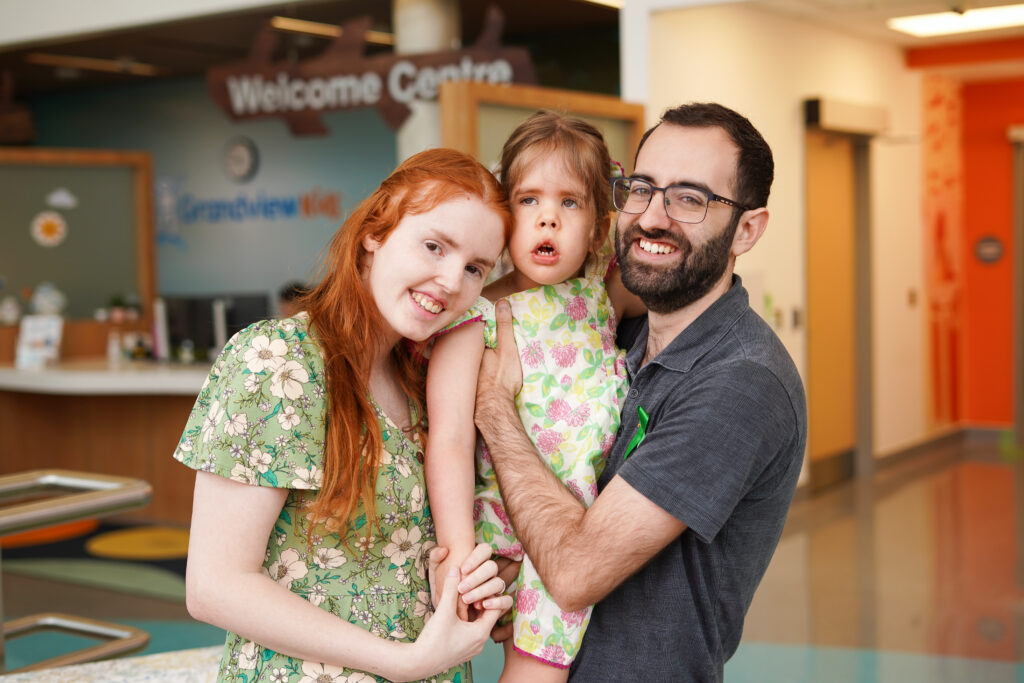
Check out more Grandview Kids articles
- Every Child Matters: Remembering, Reflecting and Recommitting
- September: Dates of Significance
- 9 tips for Transitioning Your Child from a Summer to School Schedule
- The Importance Of Advocating For Yourself: Charcot-Marie-Tooth Awareness Month
- “Every milestone was met with cheers from ‘Team Delilah’” – Myotonic Dystrophy Day 2025
